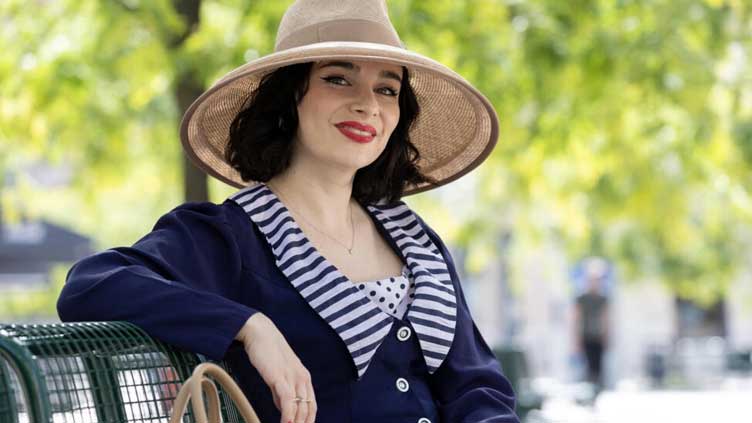From likes to votes: Croatia Gen Z influencer goes for EU seat

World
She hopes her popularity will win her a seat in the European Parliament on Sunday
Zagreb (AFP) – Nina Skocak's TikTok videos get hundreds of thousands of views and the young makeup and vintage fashion expert hopes her popularity will win her a seat in the European Parliament on Sunday.
Skocak heads Croatia's first ever independent Gen Z electoral list of 12 candidates all aged between 19 and 30. "This is an experiment to see if it's even possible, no one has ever done it," Skocak told AFP.
The 26-year-old's expertise goes way beyond the 1940s fashion she regales her quarter of a million followers with on TikTok and Instagram.
A journalism and political science graduate with a masters in European politics, she began as an intern in the European Parliament in 2022. She now works promoting Europe's Horizon research programme for scientists trying to make major breakthroughs.
Skocak announced her candidacy on social media and her followers helped her quickly gather the 5,000 signatures needed to register. "We didn't use traditional methods," she told AFP.
"Instead, we went to cafes and bars and collected signatures there. People came to have a drink and to give us a signature," the influencer said. Eventually her Gen Z list gathered 8,500 signatures, which was their first major success.
"Young people today prefer their own channels to traditional party structures," Skocak added. "We need to create different platforms and methods to engage them."
As you would expect, Skocak's campaign leverages her social media presence, engaging with her audience through pop quizzes, but she also gets out to meet people at flea markets and direct communication in bars frequented by youngsters.
She is not the first to try their new campaigning methods, said Marijana Grbesa, a political science professor at Zagreb University.
"There will be more of this since the key message from young people is, 'We don't want you talking about us, we want you to talk to us,'" she told AFP. For Grbesa the perception that young people are not interested in politics is only partially true.
"They are not interested in politics in a way that politicians talk to them," she insisted.
Youth view lacking
Skocak -- who is polling in single digits -- said her campaign is as much about education as getting elected. Her videos try to explain the electoral process and urge her followers to participate in shaping the political landscape.
In the comments many of her followers thank her for finally explaining how it all works and say that thanks to her they will definitely vote for the first time. "Skocak speaks the language young people speak. It is a big plus," said Grbesa.
"She tries to mobilise young people," she added. Young Croatians have one of the lowest levels of understanding of the EU, according to surveys.
Seventy-one percent said they understand little or nothing about the EU while the European average is 55 percent, according to a Flash Eurobarometer survey for the European Parliament in 2021.
Skocak believes that young people are interested in the European elections but are frustrated with traditional politics and need some encouragement.
Currently, only three MEPs are under 30 and Skocak sees a need for change. "Young people bring a different viewpoint in policy-making. This is definitely lacking," she argued. Her Gen Z list of seven women and five men is the youngest in the European elections.
Their manifesto focuses on youth involvement in politics, internet safety, sustainable policies and women's rights.
Determined to show that young people, especially young women, have a place in politics, Nina's independent list aims at countering the right-wing shift in Croatia's politics.
They advocate lowering the voting age to 16 years and having youth quotas in the European elections. Croatia -- which joined the EU in 2012 -- will elect 12 MEPs on Sunday. Skocak stressed that social media can mobilise people in a day.
"Maybe only a hundred people will turn out to vote, or maybe a hundred thousand will."


